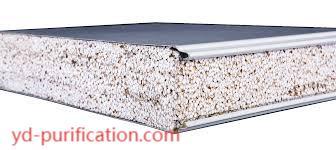Fluoropolymer Films Market Segmentation by Material & Application
Fluoropolymer films are widely recognized for their superior chemical and thermal resistance, making them indispensable in industrial processes and manufacturing. Unlike conventional polymer films, fluoropolymer variants such as PTFE, FEP, and ETFE can withstand extreme temperatures, ranging from -200°C to over 260°C, without degrading or losing mechanical properties. This capability makes them ideal for chemical processing, pharmaceuticals, and food processing industries, where exposure to aggressive solvents, acids, or high heat is common. Industries increasingly rely on these films for gaskets, lining materials, hose coatings, and protective layers to prevent corrosion and contamination.
One of the key benefits of fluoropolymer films is their non-stick surface. PTFE films, for example, prevent adhesion of residues, enabling easier maintenance and reducing production downtime. This property is particularly valuable in chemical reactors, pharmaceutical packaging, and conveyor systems in the food industry. FEP and PFA films, which are transparent and flexible, allow for visual monitoring of processes without compromising safety or performance. Additionally, these films are lightweight, which simplifies installation and reduces stress on machinery.
The films also demonstrate remarkable electrical insulation properties, allowing them to double as protective layers for industrial electrical equipment operating in harsh chemical or high-temperature environments. Their high dielectric strength ensures minimal risk of short circuits or failure, even under prolonged exposure to heat or moisture. Consequently, fluoropolymer films are used in cable insulation, heat shrink tubing, and protective coatings for sensors and control systems in industrial setups.
Sustainability and cost-efficiency are increasingly influencing the adoption of fluoropolymer films. Although these films are more expensive than conventional plastics, their long service life, resistance to chemical degradation, and minimal maintenance requirements make them a cost-effective solution over time. Manufacturers are also innovating to produce thinner films with equal or improved performance, further reducing material usage and production costs.
The industrial applications of fluoropolymer films are continually expanding. With growing awareness of process safety, environmental compliance, and operational efficiency, more industries are transitioning to fluoropolymer-based solutions. From chemical processing plants to pharmaceutical production lines, these films enhance durability, reduce maintenance, and improve overall operational safety.
In summary, fluoropolymer films serve as a critical industrial material by offering unmatched chemical, thermal, and electrical resistance. Their non-stick properties, flexibility, and durability make them a practical choice for high-performance applications across multiple sectors. As industrial processes become more demanding, the role of fluoropolymer films will continue to grow, ensuring safer, cleaner, and more efficient manufacturing.





